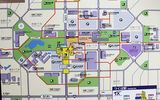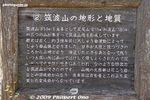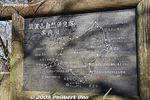 Image search results - "tsukuba" Image search results - "tsukuba" |

A big, two-day August festival in Tsukuba featuring diverse dance groups, bazaar, street performances, hula dancing, and food stalls. The climax is a nebuta parade in the evening. Everything is near Tsukuba Station (Tsukuba Express). Ever since the Tsukuba Express train line opened in 2005 from Akihabara, getting to Tsukuba is a breeze in about 45 min. Wide streets and sidewalks. The festival's main venue centered around this brown building which you see from Exit A5.
|
|

There are many things going on at the same time all day long for two days from 10 am to 9 pm.
|
|

This is Tsukuba Center Hiroba, the central part of the festival where there are food stalls and information booth.
|
|

Tsukuba Tourism Ambassadors
|
|

English translators available! I noticed quite a few foreigners in Tsukuba, a national science and technology research and academic center.
|
|

Center Hiroba outdoor stage センター広場特設ステージ
|
|

A short walk away is this large road serving as a venue for numerous dance groups performing almost all day long. This is also where the nebuta floats would be paraded in the eveing.
|
|

It drizzled off and on during the day.
|
|
|
|

A hula troupe dances next to a yosakoi group.
|
|

What would a festival be without taiko drummers?
|
|
|

Another venue in Creo Square was this small outdoor stage featuring hula dancing all afternoon long by various groups. クレオ前広場
|
|

The program was called Happy Hawaiian Stage. ハッピーハワイアンステージ
|
|

On the other side of the underground train station is Chuo Park where Art Town Tsukuba and street performances were held. アートタウンつくば2009 ~大道芸フェスティバル~
|
|

Kabuki-like magician.
|
|

Chuo Park bazaar
|
|

Street performers
|
|

Street performer (Sign says, "Photography allowed.")
|
|

A nice elevated walkway connected Chuo Park and the main festival area.
|
|

Walking further down the Tsukuba Koen-dori road toward Oshimizu Park.
|
|

In Oshimizu Park were these nebuta tents where they store the nebuta floats. 大清水公演
|
|

The nebuta tents were built in late July. No kids around sketching the nebuta though, as they do in Aomori during the day.
|
|

Inside the nebuta tent was this nebuta float from Aomori, arrived earlier in Aug.
|
|
|
|

Patching up the damaged parts of the float. Apparently, it got damaged as it passed under a bridge that is a little too low for the giant nebuta.
|
|
|
|

Another giant nebuta float.
|
|
|
|

Monkey's underarm has patch-up work.
|
|

A third giant nebuta depicts the Pharaoh Ramses II. Seeing an Egyptian theme on a Japanese float was interesting.
|
|

The fourth giant nebuta was perhaps the most unique. It was made of inflatable vinyl. It is partially deflated here.
|
|

Inside the nebuta tent.
|
|
|

From about 4 pm, they had the Matsuri Parade on the main road. まつりパレード 万博山車パレード
|
|
|

万博山車パレード
|
|

Then came this giant mikoshi portable shrine called the Tsukuba Manto Mikoshi. It doesn't seem to belong to any shrine. つくば万灯神輿
|
|
|
|

The mikoshi goes to meet the float.
|
|

Banpaku Float
|
|
|

At 5 pm, the Nebuta Parade started. It was kind of strange to see a nebuta parade in almost broad daylight.
|
|

The floats were covered with plastic due to drizzling rain.
|
|

The first big one squeezes under the bridge.
|
|
|

Haneto dancers. Much fewer of them than in Aomori.
|
|

At first glance, it looks very strange. But they soon inflated it.
|
|

Being inflated now.
|
|

Another one squeezes through.
|
|
|
|

Almost fully inflated.
|
|
|

Haneto
|
|
|
|

This small float by local Boy Scouts.
|
|

This float by a junior high school.
|
|

The inflated nebuta comes around.
|
|

At first, I thought it looked kind of gimmicky, comical, and fake, but it turned out to be quite impressive.
|
|

The slayed dragon exhaled smoke.
|
|

Poor dragon
|
|

Quite dramatic indeed.
|
|
|
|

Too bad the plastic was on the floats.
|
|
|
|

Rear view.
|
|

Ramses II
|
|
|

At the very end, despite the rain, they took off the vinyl.
|
|

Rear view of Ramses II
|
|

Each giant nebuta float is preceded by a set of drums and drummers.
|
|

And other musicians.
|
|
|
|
|

Without the plastic covering.
|
|

Rear view has a sleeping cat.
|
|

Nebuta face-off.
|
|

For the finale, all the giant nebuta gathered at the large intersection. They didn't do much.
|
|

Haneto
|
|

Matsuri Tsukuba posters
|
|

Map of central Tsukuba.
|
|

My video of Matsuri Tsukuba and the Nebuta parade.
|
|

Getting to Mt. Tsukuba is easy by bus from Tsukuba Station's Tsukuba Center Bus Terminal. Tsukuba-san Shuttle buses going directly to Mt. Tsukuba leave every 30 min. on weekends or every hour during weekdays and non-peak hours.
|
|

Mt. Tsukuba ahead. It takes about 50 min. to reach Mt. Tsukuba by bus from Tsukuba Center Bus Terminal.
|
|

Mt. Tsukuba has two peaks, Mt. Nantai (male peak) on the left and Mt. Nyotai (female peak) on the right. They are wedded peaks due to the wedded gods Izanami and Izanagi. 男体山 女体山
|
|

I got off the bus at Tsutsujigaoka, the last stop. I hiked it from Mt. Nyotai (female peak) to Mt. Nantai (male peak). It's also possible to do it in the opposite direction from Nantai to Nyotai. つつじヶ丘
|
|

Tsutsujigaoka has a ropeway aerial tram terminal taking you up to Mt. Nyotai, Mt. Tsukuba's female peak. 女体山
|
|

The ropeway runs every 20 min. The fare is 600 yen one way.
|
|

Approaching Mt. Nyotai. Mt. Tsukuba is noted for fall leaves. But I was a little too late. The leaves here turn color earlier than on the plains. 女体山
|
|

Lookout deck on Mt. Nyotai on Mt. Tsukuba.
|
|

View from Mt. Nyotai.
|
|

View from Mt. Nyotai.
|
|

Mt. Fuji as seen from Mt. Nyotai.
|
|

Mt. Nantai in the distance.
|
|

In the middle of the two peaks is another lookout deck and gift shops.
|
|

Climbing up the peak of Mt. Nyotai.
|
|

Tsukuba-san Jinja Shrine's Nyotai Honden on Mt. Nyotai. It worships Izanami, wife of Izanagi.
|
|

People climbing on the narrow peak of Nyotai. Mt. Tsukuba is one of Japan's 100 Famous Peaks.
|
|

Views from the summit of Mt. Nyotai on Mt. Tsukuba.
|
|

Tsutsujigaoka Ropeway Station below, as seen from the summit of Mt. Nyotai on Mt. Tsukuba.
|
|
|
|
|
|
|

From Mt. Nyotai, it's an easy hike but rocky trail to Mt. Nantai.
|
|

Rock formation called Gama-ishi. ガマ石
|
|
|
|

The trail continues to a clearing in the middle of the two peaks.
|
|

Between Mt. Nyotai and Nantai on Mt. Tsukuba is a row of tourist shops in this palce called Miyukigahara (御幸ケ原). That's Mt. Nantai in the background.
|
|

The round building has a gift shop on the bottom, restaurant on the 2nd floor, and a revolving lookout deck on the roof (free admission).
|
|

Tsukuba-san Shrine on Mt. Nantai, the male peak.
|
|

View from Miyukigahara.
|
|

View from Miyukigahara.
|
|

Miyukigahara.
|
|

Looking toward Nyotai from Miyukigahara.
|
|
|
|
|

View from Miyukigahara.
|
|

Mt. Nantai
|
|

Trail to climb up to Mt. Nantai.
|
|

About Mt. Tsukuba's geology in Japanese.
|
|
|

The trail soon gets steep and rocky, but not a problem for most people. High heels and miniskirt are not recommended.
|
|

Shrine atop Mt. Nantai on Mt. Tsukuba.
|
|

Mt. Nantai marker for 871 meter elevation.
|
|

Tsukuba-san Jjinja Shrine atop Mt. Nantai on Mt. Tsukuba. This is the Honden for the male god Izanagi.
|
|

View from Mt. Nantai on Mt. Tsukuba.
|
|

View from Mt. Nantai on Mt. Tsukuba.
|
|

Mt. Nyotai as seen from Mt. Nantai on Mt. Tsukuba.
|
|

Ropeway station on Mt. Nyotai.
|
|

On Nantai, there's an easy hiking trail going around the peak.
|
|
|
|
|

Hiking trail around Mt. Nantai. There are two other lookout points along the trail.
|
|

This is one of them.
|
|
|

View from Mt. Nantai on Tsukuba-san.
|
|

Miyukigahara also has a cable car station.
|
|

Tsukuba-san cable car on Mt. Tsukuba's Miyukigahara, near Nantai.
|
|

The cable car runs every 20 min. Fare is 570 yen one way. There are trails going down the mountain as well.
|
|

Cable car going up to Mt. Nantai on Mt. Tsukuba.
|
|

Bottom cable car station.
|
|

Entrance to Tsukuba-san cable car station.
|
|

Around the cable car station below the mountain, the fall leaves were very nice.
|
|
|
|
|
|
|
|
|

Autmun maple leaves on Mt. Tsukuba-san.
|
|
|
|
|
|
|
|

Tsukuba-san Jinja Shrine's Haiden Hall is adjacent to the cable car station. The Honden Hall is atop the two peaks on Mt. Tsukuba. 筑波山神社
|
|

Tsukuba-san Jinja Shrine's Haiden Hall. The shrine is dedicated to both Izanagi and Izanami, Japan's parent gods.
|
|
|
|

In autumn, a chrysanthemum display is held on the grounds of Tsukuba-san Shrine.
|
|
|
|

Depicting Mt. Tsukuba.
|
|
|
|

Gate to Tsukuba-san Jinja Shrine's Haiden Hall
|
|
|
|

Torii to Tsukuba-san Jinja Shrine
|
|
|
|

When I was there, a helicopter hovered about Mt. Nantai to rescue an injured hiker. I took a bus back to Tsukuba Station.
|
|
|
|
|
|